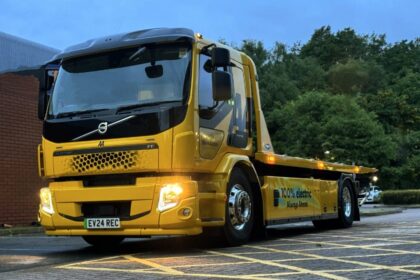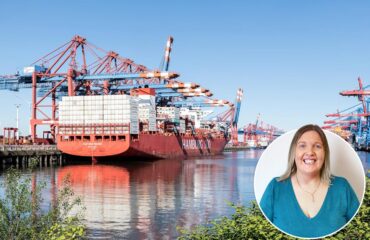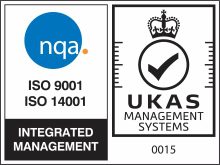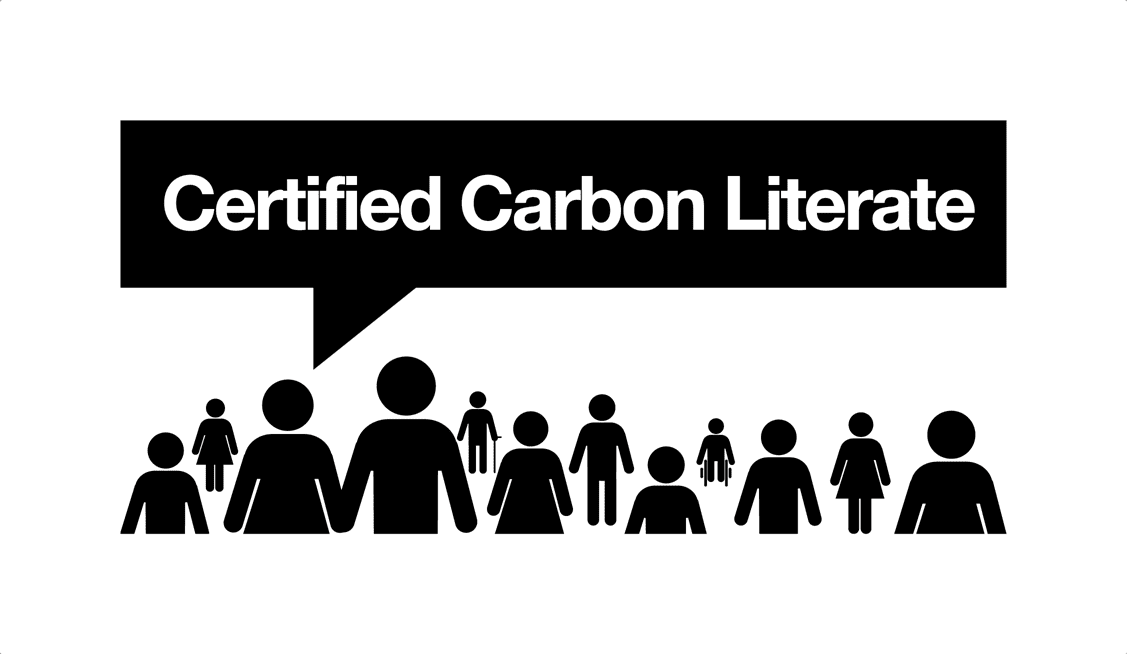
Fully electric recovery trucks will be hitting the UK’s roads thanks to a pioneering launch from The AA.
The move will see The AA become the first UK-based roadside assistance firm to add full electric recovery vehicles to its fleet.
Due to the complex vehicle requirements, The AA is taking a “test and scale” approach to fleet decarbonisation with structured tests of alternative fuel vehicles in real-life settings.
The UK’s largest motoring organisation hosted a Fleet Decarbonisation event at its Oldbury Operations Centre today (Friday), unveiling the most recent additions to its 3000-vehicle-strong roadside assistance and recovery fleet.
Edmund King OBE, AA president, and Duncan Webb, AA’s head of fleet, welcomed guests from across the motoring world to present an overview of The AA’s Motoring Manifesto, The AA’s latest Environment Social and Governance (ESG) report and its plans to extend its range of low emissions concept vehicles. The pair discussed how The AA will navigate its way towards a net zero future before unveiling The AA’s latest electric concept vehicles to the gathered motoring press and fleet suppliers.
Amongst an impressive selection of low-emission vehicles from across The AA business sat the day’s main attractions: a fully electric Volvo FE Slidebed; an Iveco eDaily Powerload; an Iveco eDaily crew van equipped with a heavy-duty Compact Recovery Trailer (CRT). These vehicles will become the first operational EV recovery trucks in the UK, accelerating the company’s efforts to meet its 2035 net zero target.
Edmund King OBE said: “Introducing these exciting new concept vehicles to our fleet is an important step towards our goal of becoming a net zero company by 2035.
“As a market-leading organisation, we are committed to showing the way as the country transitions to a zero emissions future.”
This electric version of the Volvo FE 19T is equipped with a Boniface VLA (very low angle) slidebed. It is the latest addition to a growing partnership between The AA and the Swedish vehicle maker. The vehicle can carry 6000kg on its recovery bed and up to 2000kg on its 2nd car lift. The vehicle has an impressive range of 170 miles and a recharge rate of 2.25 hours when using a 150kWh rapid charger. The spacious cab can carry two passengers in comfort and is likely to be used to recover vehicles in and around low-emissions zones such as London and Birmingham.
Duncan Webb added: “We’re excited to introduce these groundbreaking vehicles to our ‘test and scale’ approach to fleet decarbonisation.
“All the vehicles on show today are subject to structured tests in real-life settings and include both hydrogenated vegetable oil (HVO), electric in the highest emission intensity HGVs and across our wide range of Van applications. These vehicles form the foundation of learning for scale deployment in the near and long-term future for our customers.”










